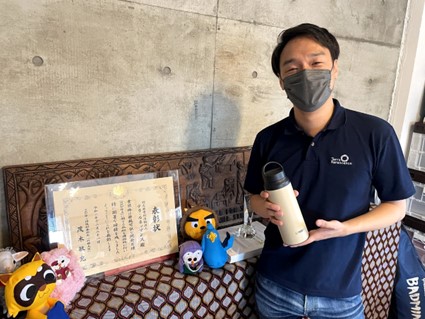Magazine
A little help, but not nothing. Conflict-Free Minerals in the Congo Interview with Akihiro Shima
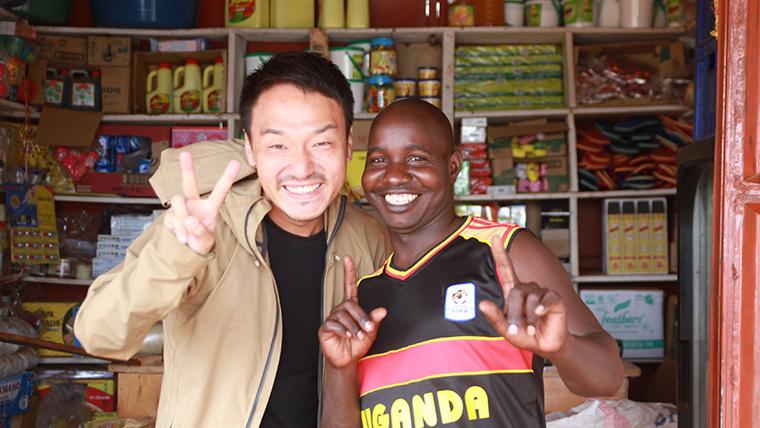
“Terra Renaissance is a non-profit organization dedicated to the realization of a society in which all life can live in peace (world peace). Overseas, Terra Renaissance provides local support for issues related to conflict minerals, such as landmines, small arms, and child soldiers, while in Japan, it is engaged in educational activities centered on peace education.
This time, we interviewed Akihiro Shima, who is in charge of public relations at Terra Renaissance.
We asked Mr. Shima, who sympathizes with “conflict-free minerals” in the “Four Promises” of the sustainable policy of Tiger Corporation, about his support activities in the Democratic Republic of Congo.
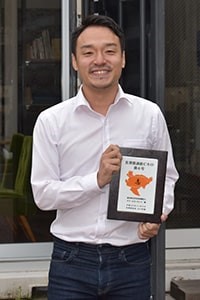
Profile:
Born in Kyoto, Japan, in 1989, he graduated from the Graduate School of International Cooperation Studies, Kobe University. While conducting research on conflict in Africa at graduate school, she conducted a survey on peace education in Kenya. After working as a web marketer at a travel agency, she joined Terra Renaissance in October 2017. She is in charge of online public relations and fundraising, and at the same time, as a staff member of the Saga Office, which opened in November 2017, she coordinates awareness-raising activities in Kyushu. Currently, she is based in the Kyoto office and works as the online marketing manager of the Awareness Department and Saga Project Manager.
Helping Victims of Conflict “Helping victims of conflict become self-reliant
Q. First of all, can you tell us briefly about the activities of Terra Renaissance?
One of the main activities we are currently engaged in is “self-reliance support” for the victims of conflict. The problem of landmines is particularly serious, destroying the lives of those who have been affected by them. The same is true for kidnapping and child soldiers who are drafted into the military.
Even if they are fortunate enough to be released from the military, they have no job and no schooling due to years of combat. In addition, they may be seen as perpetrators in the village or town where they lived.
The aim of the project is to create a situation where such conflict victims, who are unable to live on their own, can be happy on their own. Specifically, we support them to become self-reliant by providing them with job training and the ability to earn money on their own. Currently, we have offices in Cambodia, Congo, Uganda, Burundi, and Laos, and have been conducting direct support activities.
(Click here for more information on our activities)
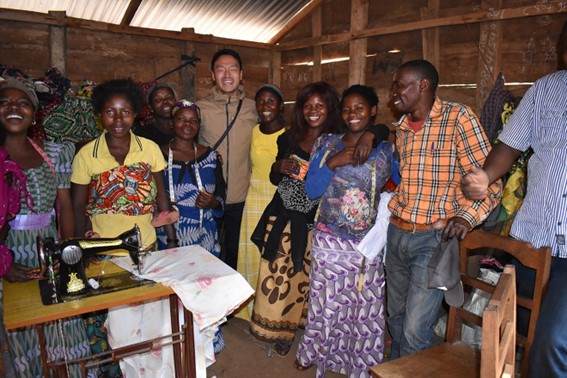
The Democratic Republic of the Congo and What is the relationship between the Democratic Republic of Congo and conflict minerals?
Q. I believe that the Democratic Republic of Congo is facing a serious problem with tantalum, a conflict mineral that is used in computers and cell phones that we are all familiar with. What is the relationship between the Democratic Republic of Congo and conflict minerals?
The Democratic Republic of Congo is a resource-rich place where many rare metals such as gold, diamonds, and tantalum are extracted. When I first visited the country three years ago, I was surprised to find a place so full of goods and people coming and going that I wondered if there was really a conflict here.
Conflicts in Congo are often referred to as “civil wars,” but in reality, most of them involve neighboring countries and developed countries. So it has become a place of so-called international conflicts. They are especially concentrated in the eastern part of the Democratic Republic of Congo, which is rich in rare metals. All kinds of countries, including developed countries, are trying to use force to suppress the struggle for these rare metals, or to seize the resources. The country has been in a state of conflict for a long time and a total of 5.4 million people have died.
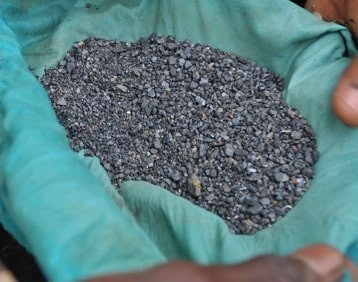
“Child Labor, Child Soldiers, and Sexual Violence
Problems faced by victims of conflict
Q. This brings up the issue of all kinds of conflict minerals. Could you tell us briefly about that issue?
One is the issue of “child labor” where children are forced to work as laborers to extract rare metals. The other is the issue of child soldiers, who are drafted into the armed forces to fight in conflicts, as I mentioned earlier.
In some cases, children are kidnapped and forced to serve as child soldiers, and in other cases, they volunteer to serve. We may think that children would never volunteer to serve. However, soldiers have to kill people, but they can eat food, which means they can live. In other words, they have no choice but to participate because of their poverty.
Another thing is that the position of women in the Democratic Republic of Congo is overwhelmingly weak. Due to the conflict, villages are sometimes attacked and sexual violence is committed, but it is not done out of human desire, but to control the village with fear.
Self-reliance support for victims of conflict
The root of the problem is poverty
Q. What kind of self-reliance support do you specifically provide for these conflict victims?
Women who have been sexually abused during the conflict are given vocational training to learn the skills of western-style dressmaking. By working with their hands with the goal of opening their own businesses, the women regain the strength to live.
We also provide vocational training for former child soldiers so that they can return to society. We aim to reduce “being seen as a perpetrator” and resolve communication with the people around them by creating a situation where they can get a job and be needed by the people around them.
Being needed by someone will boost your self-esteem. The joy of making someone smile with their work and being able to help someone else will heal their wounded hearts.
These problems are also rooted in the problem of poverty. If families themselves become richer, they can avoid becoming child soldiers themselves, and women who have been sexually violated will no longer be hurt and oppressed by the conflict. We are also working on activities that focus on these fundamental aspects.
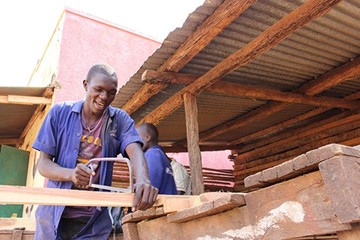
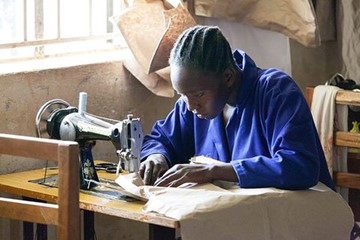
Q. Did you experience any change in your mind or behavior after actually going to the area?
A boy, a former child soldier of about 12 or 13 years old, said to me, “I wish everyone would be rich, so there would be no war. I was struck by the children’s intrinsic understanding of how poverty and the gap between rich and poor affects conflict.
I also became aware that the situation that the local people are suffering from is also related to our lives.
As part of our awareness-raising activities, Terra Renaissance has been putting a lot of effort into communicating the current situation, but this made us even more aware of this issue. However, we can’t do anything by ourselves. Our desire to solve their situation, even if only a little, by involving other organizations, companies, and countries in changing their awareness has become stronger.
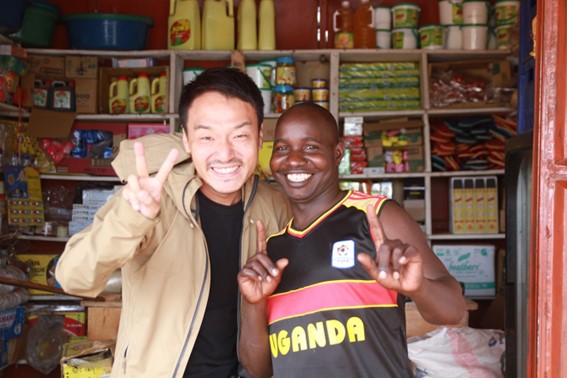
The first thing an individual can do is to think about their consumption behavior.
Q. Is there anything you can do individually to address these issues? Also, please tell us what you are doing personally.
For example, tantalum, a conflict mineral, is used as a raw material for cell phones and computers. I myself am conscious of avoiding using products that contain conflict minerals in their raw materials as much as possible.
I think this is a common thread with Tiger Corporation’s thoughts on “conflict-free” in their sustainable policy “Four Promises”. As a consumer, I think it is very meaningful to choose products from companies that provide information on their resource procurement.
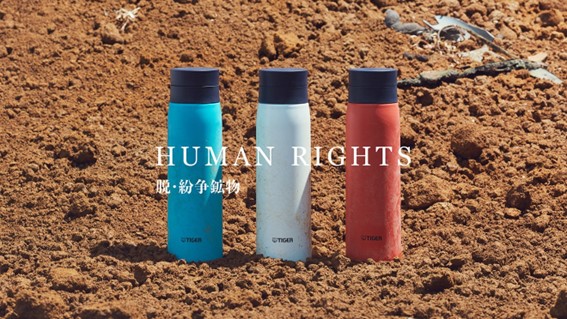
“A little power, but not nothing.”
That power is hidden in our daily lives.
Q. Mr. Shima, what was your impression of the “Four Promises” sustainable policy of Tiger Vacuum Bottles?
The “Four Promises” initiative itself is very close to our daily lives, and I felt sympathy for it.
There is a phrase that Terra Renaissance cherishes, “We may be small, but we are not powerless. The idea is that what each one of us can do is very small, but when we gather our small power, it becomes a big power. Where can we find this small power? It is hidden in our everyday life.
If we can draw out the “small power” in our daily lives by using the Tiger Bottle and show it in our actions, I believe that this society will change.
Q. Thank you very much. Finally, can you tell us about your future plans?
When I joined Terra Renaissance and started working on the issue of conflict minerals, what I personally felt was that there is no one who is not involved.
If there is someone in front of you who thinks that it is not relevant to them, ask them to change “not relevant” to “relevant. If more and more people can change the focus of their concern and make it their own, I believe that we can eliminate war from the world.
The activities of Terra Renaissance and my own desire are the same: to eliminate war from the world. I believe this will not change in the future.
